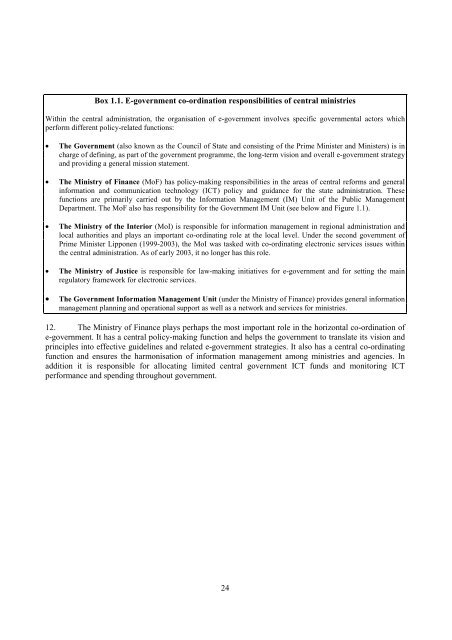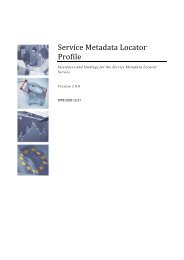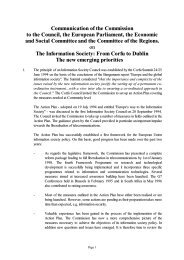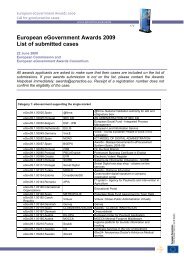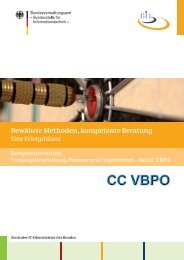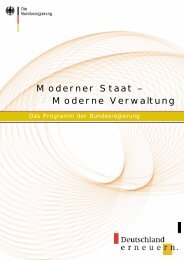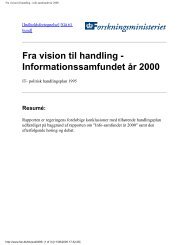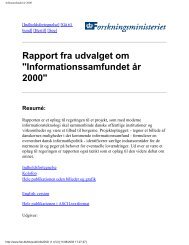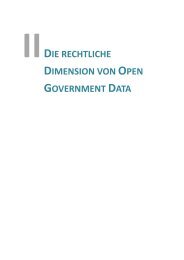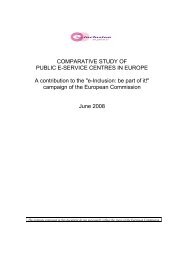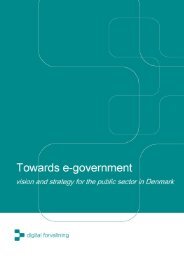e-GOVERNMENT IN FINLAND - ePractice.eu
e-GOVERNMENT IN FINLAND - ePractice.eu
e-GOVERNMENT IN FINLAND - ePractice.eu
Create successful ePaper yourself
Turn your PDF publications into a flip-book with our unique Google optimized e-Paper software.
Box 1.1. E-government co-ordination responsibilities of central ministries<br />
Within the central administration, the organisation of e-government involves specific governmental actors which<br />
perform different policy-related functions:<br />
x The Government (also known as the Council of State and consisting of the Prime Minister and Ministers) is in<br />
charge of defining, as part of the government programme, the long-term vision and overall e-government strategy<br />
and providing a general mission statement.<br />
x The Ministry of Finance (MoF) has policy-making responsibilities in the areas of central reforms and general<br />
information and communication technology (ICT) policy and guidance for the state administration. These<br />
functions are primarily carried out by the Information Management (IM) Unit of the Public Management<br />
Department. The MoF also has responsibility for the Government IM Unit (see below and Figure 1.1).<br />
x The Ministry of the Interior (MoI) is responsible for information management in regional administration and<br />
local authorities and plays an important co-ordinating role at the local level. Under the second government of<br />
Prime Minister Lipponen (1999-2003), the MoI was tasked with co-ordinating electronic services issues within<br />
the central administration. As of early 2003, it no longer has this role.<br />
x The Ministry of Justice is responsible for law-making initiatives for e-government and for setting the main<br />
regulatory framework for electronic services.<br />
x The Government Information Management Unit (under the Ministry of Finance) provides general information<br />
management planning and operational support as well as a network and services for ministries.<br />
12. The Ministry of Finance plays perhaps the most important role in the horizontal co-ordination of<br />
e-government. It has a central policy-making function and helps the government to translate its vision and<br />
principles into effective guidelines and related e-government strategies. It also has a central co-ordinating<br />
function and ensures the harmonisation of information management among ministries and agencies. In<br />
addition it is responsible for allocating limited central government ICT funds and monitoring ICT<br />
performance and spending throughout government.<br />
24


